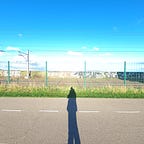‘Girls’ Generation 1979’…A dainty depiction of love and friendship.
Spoilers Ahead…
It’s hard not to compare Girls’ Generation 1979 to the celebrated Reply Series, which popularised (and commodified) nostalgia in K-dramas since the series first aired in 2012. Apart from setting the story in a politically and culturally significant time-period of the past, (the year in the titles allude to the year the show takes place in), Girls’ Generation 1979 is similarly also a coming-of-age story set in Daegu, with most dialogues spoken in the local dialect, satoori. But the similarities between both the shows end right there.
Within the context of our fast-paced, competitive, and technology-ridden world, the Reply series created a deep sense of longing for those seemingly simpler times (even for those of us who weren’t yet born at the time the story takes place!). Likewise, Girls’ Generation 1979 also starts out by establishing this particular era (the drama opens to Lee Jung Hee and her friends dancing to Gimme Gimme Gimme by Abba), but soon afterwards, the drama keeps nostalgia at an arm’s length. It makes sense, as the 70s' is not a time period in South Korean history that can be romanticized. The country was under an authoritarian dictatorship, with little to no political freedom. The Cold War was looming over and it hadn’t been long since the Korean War ended. (The maps in the classrooms displayed a unified Korea, and many banners, posters urged people to be on the lookout for spies). Curfews were commonplace, as were corporal punishment in schools. Military drills, first aid training were part of the school syllabus. Gender roles were stricter and more defined. Jung Hee’s (a bubbly Bona) father (Kwon Hae Hyo) even questions the need to send girls to school. Essentially, it is not a time that we would long to go back to, but it serves as a reminder of how far we have come (and subsequently how far we still have to go).
The show’s unusualness in this nostalgia-driven narrative, is that it doesn’t highlight the era’s quirks. Unlike the Reply series where pop-culture references, music, fashion, and significant historical events were weaved into the narrative, spotlighting these as the aspects that made this particular time period unique, here it serves as just a background to the main plotline. Park Hae Joo’s (Chae Seo Jin) father is arrested when he is suspected to be a communist. Sim Ae Sook (Min Do Hee) is repeatedly hit by a wooden stick by her teacher as punishment. Bae Dong Moon (Seo Young Joo) is detained after roaming the streets past curfew time and Jung Hee is forced to spend the night at the study rooms when she forgets to get home before curfew. These incidents aren’t called attention to, to show us how different things used to be, but rather just unfold without spectacle because the show is ultimately about these characters and about the love and friendship between them.
Love is in the small details, like going to the pharmacy every day, where your crush works to see (or if lucky, talk to) him. It is about improving your grades to impress the boy you like. It is about how comfortably you eat when you are with him, or how you find your way back to him after a difficult day. It is about crying out loud after having your heart broken. All these moments play out as quiet revelations, like the beautiful scene where Hae Joo quietly cries on Young Choon’s (Lee Jong Hyun) shoulder after a particularly difficult day at school. Friendship too, primarily between Jung Hee and Hae Joo (I wished we could have seen more of Jung Hee’s gang) waxes and wanes as Jung Hee struggles to balance her newly felt jealousy and newly gained admiration for Hae Joo.
Even the adults aren’t spared these small delights or heartaches, whether it’s the maths teacher (In Gyo Jin) who is smitten by an acquaintance (Han Geu Rim) after a chance encounter on the street, or Jung Hee’s mother (the ever spectacular Kim Sun Young) who is devastated after a suspicion turns out to be true. That’s why I didn’t quite embrace Jung Hee’s narration over many of the scenes, as it often made them look pretentious. She was either stating the obvious or spelling out the moment for us, which didn’t fit in with how the rest of the story was told. With many open-ended plotlines in the story — like the nature and duration of Jung Hee’s father relationship with their maid, or Hae Joo’s father involvement in activism — it lends intrigue, and the audience’s involvement as we wonder and infer things on our own, but the narration kills that.
Girls’ Generation 1979 is honestly not a must-watch drama, but it is sincere and heartfelt in the story it tells. It can sometimes feels very carefully crafted and creaseless compared to a spontaneity that is associated with stories about teenagers, but it still is quite an enjoyable drama.
